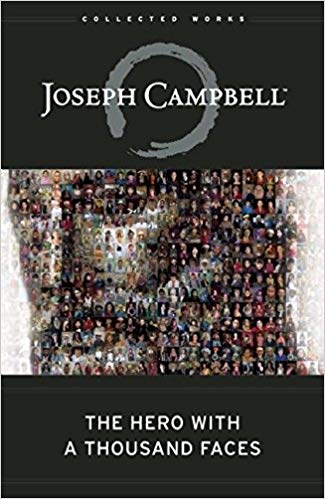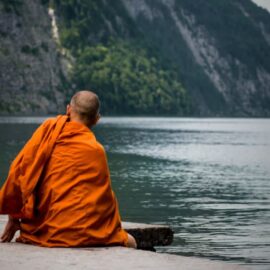

This article is an excerpt from the Shortform summary of "The Hero with a Thousand Faces" by Joseph Campbell. Shortform has the world's best summaries of books you should be reading.
Like this article? Sign up for a free trial here .
What is stage 12 of Joseph Campbell’s hero’s journey? What is the significance of the “refusal to return”?
The refusal to return is the stage of the hero’s journey in which the hero refuses their duty to return home and bestow their newfound wisdom upon the rest of humanity. The refusal of the return is stage 12 of Joseph Campbell’s hero’s journey, from The Hero with a Thousand Faces.
We’ll cover what the refusal to return entails and look at an example of the refusal-to-return stage of the hero’s journey.
Before the Refusal to Return
Before the refusal to return is enlightenment. After conquering their fears, the hero at last achieves their long-sought enlightenment. They have shattered the bounds of consciousness and reached a divine state. Mythological and religious traditions throughout history and across the world teach us that this power lives within us all—we achieve it through our own herohood.
In many traditions, this figure of ultimate enlightenment assumes both male and female forms. The Bodhisattva is represented as both masculine Avalokiteshvara and feminine Kwan Yin. The Great Original of ancient Chinese lore similarly embodied both masculine Yang and feminine Yin. In the Judeo-Christian tradition, Adam, the original man, also contains the original woman—Eve is created from his rib.
The Refusal to Return
After the completion of the quest, the hero must return home with their bounty, be it Jason’s Golden Fleece, or the Little Briar Rose of German legend. The final piece of the monomyth now requires the hero to share this wisdom, this hard-won prize back to the real world, where it will benefit the hero’s community, and, possibly, the universe.
But sometimes, mythology records a hero unwilling to return to the world. This is the stage of the refusal to return. Just as they may have refused the initial call to adventure, so they may refuse their duty to return home and bestow their newfound wisdom upon the rest of humanity. Even the Buddha, after his victory at the Tree of Enlightenment, doubted if it was even possible to bring the joy of true enlightenment to other mortals. It is tempting for the hero to simply turn away from the world and reside forever in Paradise.
Refusal to Return Example: King Muchukunda
In an ancient Hindu legend, King Muchukunda is granted his wish for eternal sleep after helping the gods defeat an army of demons (his Ultimate Boon). He further requests that anyone who attempts to rouse him be burned to a crisp when he lays eyes upon them. He sleeps through the ages as empires and civilizations rise and fall.
After a great period of time, a youth named Krishna (an incarnation of Vishnu, Lord of the World) comes to power. In the course of a battle, Krishna is pursued by an enemy barbarian king into the cave where Muchukunda is enjoying eternal sleep. As Muchukunda awakens, the barbarian is burned alive, as is Krishna. Muchukunda laments what he has done and curses the folly of his worldly pursuits. As he emerges from his cave, he sees that men have become smaller and crueler. Despairing, he retreats back into his cave to live a life of asceticism and self-denial. This is an example of the stage of the refusal to return.
———End of Preview———

Like what you just read? Read the rest of the world's best summary of "The Hero with a Thousand Faces" at Shortform . Learn the book's critical concepts in 20 minutes or less .
Here's what you'll find in our full The Hero with a Thousand Faces summary :
- How the Hero's Journey reappears hundreds of times in different cultures and ages
- How we attach our psychology to heroes, and how they help embolden us in our lives
- Why stories and mythology are so important, even in today's world






